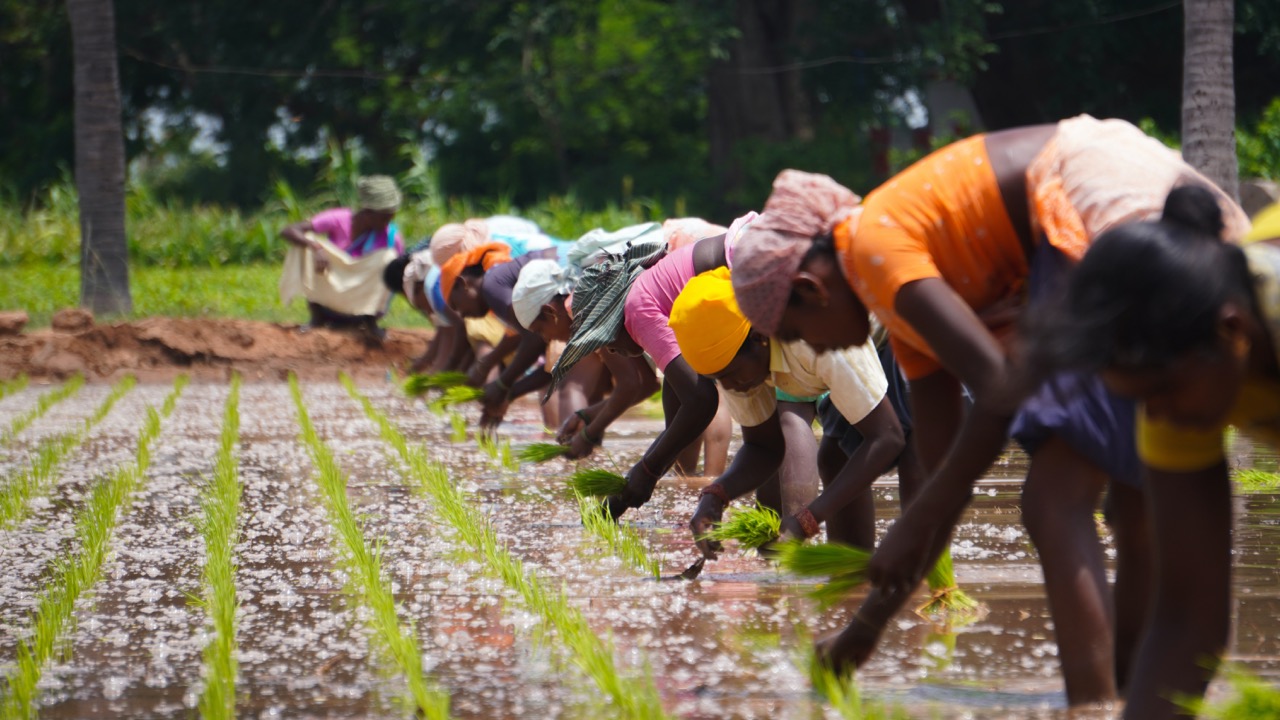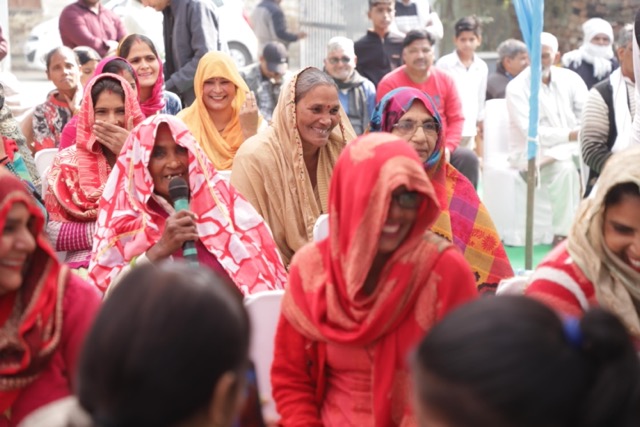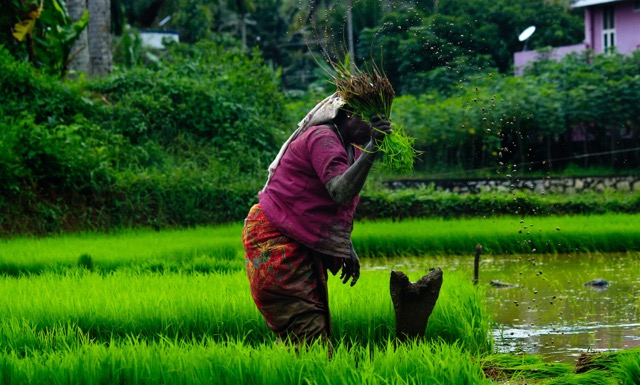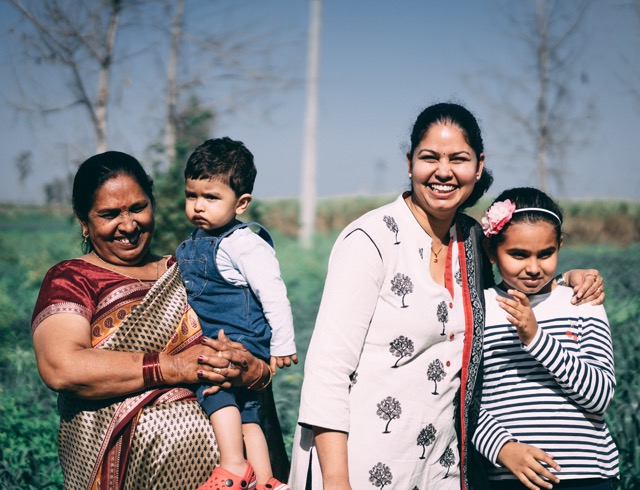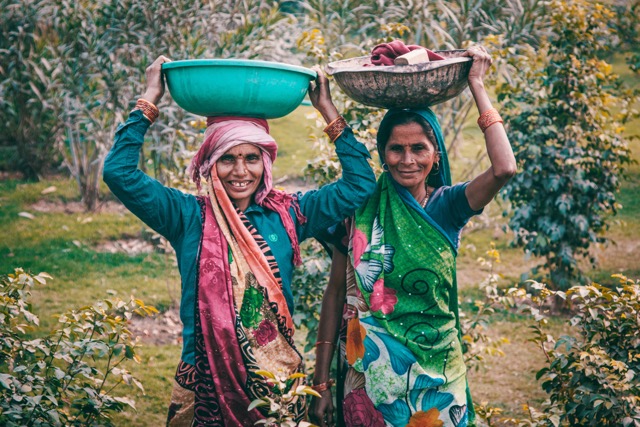
India’s First Female Farmer Storytelling Network for Air Pollution Prevention
The Air Quality Life Index estimates that exposure to air pollution would reduce a resident's life expectancy by 3.7 years. Crop waste burning is a significant cause of environmental pollution. Additionally, it affects the well-being and financial security of farmers. Women play an essential role when we look at farmer homes in Haryana, Uttar Pradesh, Delhi, and Punjab. The National Sample Survey Office states that rural women, who comprise 75% of the workforce, manage 60% of all agricultural tasks. They are the best resource available to combat agricultural practices' impact on air pollution and promote clean air.
To convey tales about air pollution, its impacts on health, how to protect yourself from it, and how to adopt sustainable practices to minimize air pollution, this project intends to develop the mobile storytelling abilities of 100+ women farmers. In their local communities and online (where there is severe air pollution, farming communities, and important events like COP28), this will help them climb the ladder of power.
Air pollution is a significant issue for environmental health
Crop burning, industrial pollutants, and car emissions are all important sources of pollution. Air pollution becomes a significant concern when farmers burn agricultural residue, also known as stubble burning, to clear their fields, which further impacts their health and the local community’s health. Despite this, many farmers are unaware of the harmful impact stubble burning has on their health and the environment and lack alternative methods for cleaning their fields. To reduce it, we must make a compelling case for local action. Even while air pollution affects everyone, not everyone is equally involved. The sensitivity to air pollution is increased by inequality and marginalization due to gender, low income, and other social and economic factors. We must consider these facts for the treatments for air pollution to be successful. Women farmers may assist with this.
Empowering Women Farmers to Lead Clean Air Initiatives
If women farmers had the same access to productive resources as men, they could increase agricultural yields by 20 to 30%, according to research from the Food and Agriculture Organization (FAO). Women work in agriculture, performing various duties like weeding, planting, harvesting, and storing food. People's families, neighborhoods, and communities will benefit when given the means to promote clean air.
Project Activities
To enable a network of champion voices in their community around clean air, we will choose and organize a network of more than 100 women farmers from various North Indian states. Then, train them in mobile storytelling techniques, including shooting, editing, and sharing video stories using smartphones. We'll monitor how the initiative affects female farmers, their communities, and other farmers who sign up for the course and assess how well the project's activities worked.
What do we aim to do?
Storytelling as a means of promoting change
Stories can evoke an emotional reaction by utilizing the inspiration, imagination, and personal values that fuel the most effective and long-lasting types of societal change. Therefore, inspirational stories contrast with popular narratives that frequently focus on issues. They display the presence of answers.
Developing a Farming Ecosystem for Women
We are developing a network of female farmers who can be mentors and role models for other female farmers and farming families in the neighborhood, fostering a more significant shift towards sustainable agriculture and substitutes for stubble burning. Additionally, they may utilize their newly acquired storytelling abilities to discuss additional community concerns (such as those relating to health, nutrition, and education) and develop as creators to find alternative sources of income through various platforms.
The impact we expect
More than 100 women receive direct upskilling in storytelling so they can keep using it to discuss air pollution, its effects, and clean air solutions in their communities. Ultimately, they are becoming leading spokespersons for these concerns offline and online.
Community Course for Additional Farmer Groups:
- The Farmer and Wingify Foundation's partner network will be executed to develop content for broader dissemination and raising awareness, spreading knowledge about the basics of air pollution, the effects of agriculture on air quality, and the promotion of environmentally friendly practices that can improve air quality.
- Randomized controlled trials will also be used to assess the pre- and post-impact of the course to understand the gain in knowledge/change in behavior.
Increased knowledge of the significance of clean air solutions and air pollution:
Success would entail that everyone in the community—including consumers, other farmers, and women farmers—understands the dangers of air pollution to human health and the importance of the available remedies.
Taking on air pollution from a gender perspective:
Besides providing food, water, and care for the young and elderly, women farmers are also responsible for family energy. Sustainable Development Goals, poverty alleviation, and environmental preservation are only a few advantages of supporting gender equality and women's empowerment. By addressing air pollution from a gender perspective, we raise awareness and develop tomorrow's leaders.
Female farmers' empowerment via leadership and a network:
Success would imply that women farmers could take the initiative, share their expertise and experiences, and contribute to adopting sustainable farming methods that would benefit their communities, families, and the environment.
